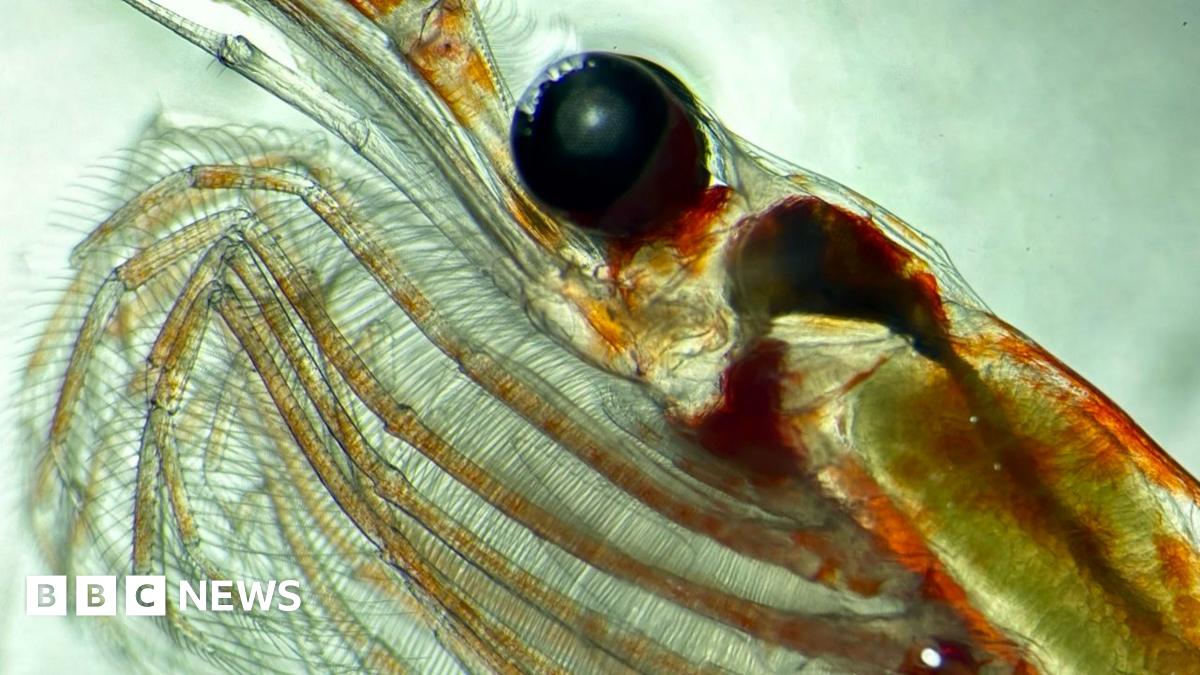Investigating The Carbon Sequestration Potential Of Small Organisms

Welcome to your ultimate source for breaking news, trending updates, and in-depth stories from around the world. Whether it's politics, technology, entertainment, sports, or lifestyle, we bring you real-time updates that keep you informed and ahead of the curve.
Our team works tirelessly to ensure you never miss a moment. From the latest developments in global events to the most talked-about topics on social media, our news platform is designed to deliver accurate and timely information, all in one place.
Stay in the know and join thousands of readers who trust us for reliable, up-to-date content. Explore our expertly curated articles and dive deeper into the stories that matter to you. Visit Best Website now and be part of the conversation. Don't miss out on the headlines that shape our world!
Table of Contents
Investigating the Carbon Sequestration Potential of Small Organisms: A Tiny Revolution in Climate Change Mitigation?
The race against climate change is intensifying, and scientists are exploring every avenue for carbon sequestration – the process of capturing and storing atmospheric carbon dioxide. While large-scale projects like reforestation receive significant attention, a revolutionary shift in focus is emerging: the incredible carbon sequestration potential of small organisms. From microscopic bacteria to industrious earthworms, these often-overlooked creatures play a vital, and potentially game-changing, role in mitigating climate change.
The Unsung Heroes of Carbon Capture
For years, the focus on carbon sequestration has largely centered on large-scale solutions like planting trees and developing carbon capture technologies. However, the intricate web of life within our soils and oceans holds a surprisingly significant capacity for carbon capture. Microbial communities, particularly in soil, are incredibly efficient at capturing and storing carbon. These tiny organisms, including bacteria, archaea, and fungi, utilize various mechanisms to incorporate carbon into their biomass and the soil itself.
- Microbial Respiration: While respiration releases CO2, the net effect of microbial activity in healthy soils often results in carbon sequestration.
- Organic Matter Decomposition: The decomposition of organic matter by microorganisms leads to the formation of stable soil organic carbon (SOC), a crucial long-term carbon sink.
- Mycorrhizal Fungi: These fungi form symbiotic relationships with plant roots, enhancing nutrient uptake and facilitating carbon transfer from plants to the soil.
Beyond Microbes: The Role of Larger Organisms
The contribution of larger organisms to carbon sequestration is also significant and often underestimated. Earthworms, for instance, are crucial for soil health and carbon storage. Their burrowing activities enhance soil aeration and water infiltration, creating a more favorable environment for microbial activity and carbon sequestration. Similarly, other soil invertebrates and even certain aquatic organisms contribute to the overall carbon cycle.
Understanding the mechanisms: Research into the specific mechanisms by which these organisms contribute to carbon sequestration is ongoing. Scientists are utilizing advanced techniques like stable isotope analysis and metagenomics to unravel the complex interactions within these ecosystems and quantify their carbon capture potential.
The Potential for Scaling Up
While the potential of small organisms in carbon sequestration is immense, scaling up their contribution requires a multifaceted approach:
- Protecting and restoring biodiversity: Maintaining healthy ecosystems is crucial for supporting diverse and thriving microbial and invertebrate communities.
- Sustainable agricultural practices: Practices like no-till farming, cover cropping, and crop rotation enhance soil health and carbon sequestration.
- Investing in research: Further research is needed to fully understand the complex interactions within these ecosystems and optimize their carbon sequestration potential.
- Promoting awareness: Public awareness about the critical role of small organisms in climate change mitigation is essential for supporting effective conservation and management strategies.
The Future of Carbon Sequestration: A Collaborative Approach
The fight against climate change demands a comprehensive approach. While large-scale projects remain vital, recognizing and harnessing the power of small organisms offers a powerful and often overlooked strategy. By focusing on soil health, protecting biodiversity, and investing in research, we can unlock the significant potential of these tiny but mighty allies in the battle against climate change. The future of carbon sequestration may well lie in understanding and supporting the intricate workings of the microbial and invertebrate world. Let's not underestimate their power.
Call to Action: Learn more about sustainable agriculture practices and how you can contribute to soil health and carbon sequestration in your own community. Support organizations dedicated to biodiversity conservation and research into microbial ecology. Every action, however small, contributes to a larger, more sustainable future.

Thank you for visiting our website, your trusted source for the latest updates and in-depth coverage on Investigating The Carbon Sequestration Potential Of Small Organisms. We're committed to keeping you informed with timely and accurate information to meet your curiosity and needs.
If you have any questions, suggestions, or feedback, we'd love to hear from you. Your insights are valuable to us and help us improve to serve you better. Feel free to reach out through our contact page.
Don't forget to bookmark our website and check back regularly for the latest headlines and trending topics. See you next time, and thank you for being part of our growing community!
Featured Posts
-
 Iowa Hawkeyes Player Ratings Ea Sports College Football 2026 Roster Deep Dive
Jul 06, 2025
Iowa Hawkeyes Player Ratings Ea Sports College Football 2026 Roster Deep Dive
Jul 06, 2025 -
 Trump Agenda Megabill How Your Representative Voted
Jul 06, 2025
Trump Agenda Megabill How Your Representative Voted
Jul 06, 2025 -
 Fantastic Four And Nip Tuck Actor Julian Mc Mahon Passes Away At 56
Jul 06, 2025
Fantastic Four And Nip Tuck Actor Julian Mc Mahon Passes Away At 56
Jul 06, 2025 -
 2025s Leading Philadelphia Personal Injury Lawyer Leonard Hill Featured In Tidewater News
Jul 06, 2025
2025s Leading Philadelphia Personal Injury Lawyer Leonard Hill Featured In Tidewater News
Jul 06, 2025 -
 Analysis Gop Response To The Enactment Of Trumps Domestic Agenda
Jul 06, 2025
Analysis Gop Response To The Enactment Of Trumps Domestic Agenda
Jul 06, 2025
Latest Posts
-
 Oasis Comeback 1995 And Beyond
Jul 06, 2025
Oasis Comeback 1995 And Beyond
Jul 06, 2025 -
 Top 500 Apple Music Songs 2010 2019 Sheeran Drake The Weeknd Lead The Pack
Jul 06, 2025
Top 500 Apple Music Songs 2010 2019 Sheeran Drake The Weeknd Lead The Pack
Jul 06, 2025 -
 Ketamine Treatment A High Risk Gamble For Mental Health
Jul 06, 2025
Ketamine Treatment A High Risk Gamble For Mental Health
Jul 06, 2025 -
 Julian Mc Mahon 56 A Look Back At The Life And Career Of The Beloved Actor
Jul 06, 2025
Julian Mc Mahon 56 A Look Back At The Life And Career Of The Beloved Actor
Jul 06, 2025 -
 Apple Musics Decade Defining Hits Shape Of You Leads The Pack
Jul 06, 2025
Apple Musics Decade Defining Hits Shape Of You Leads The Pack
Jul 06, 2025
